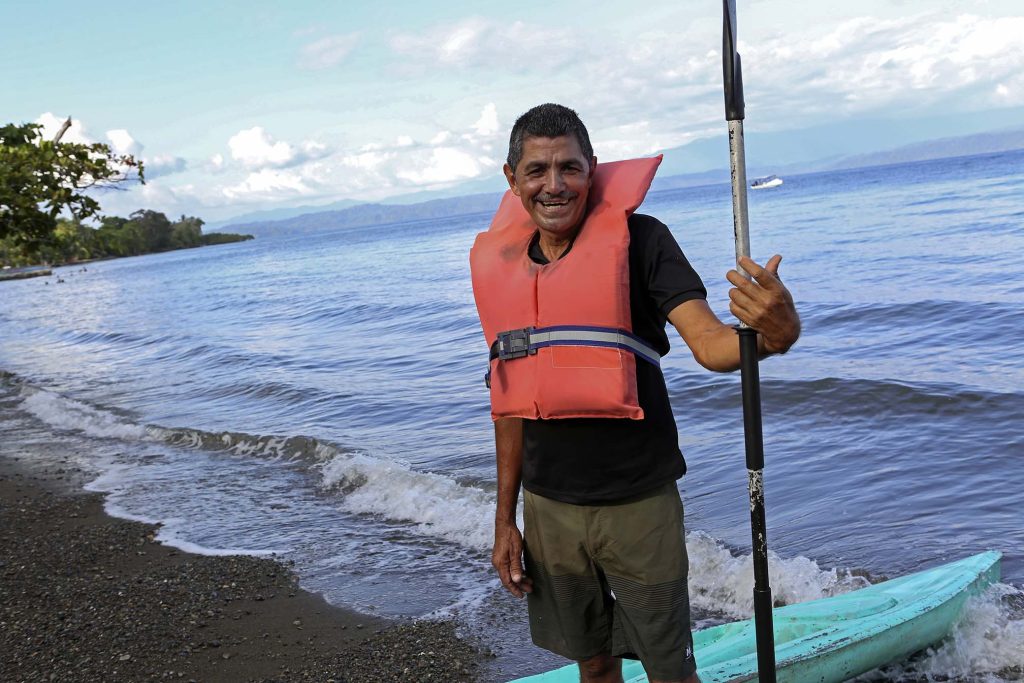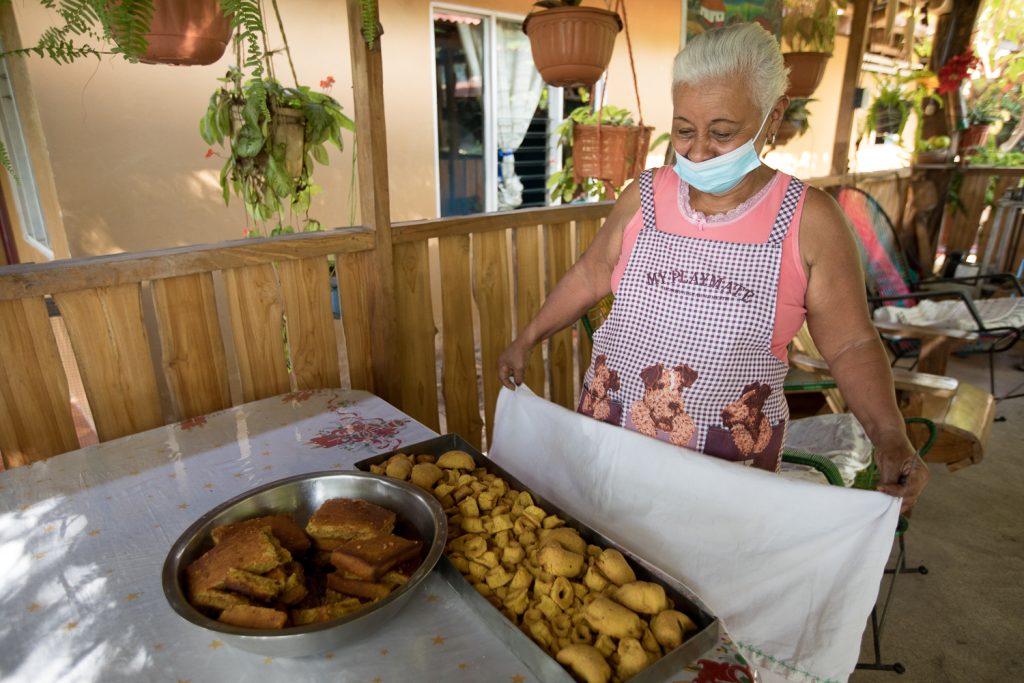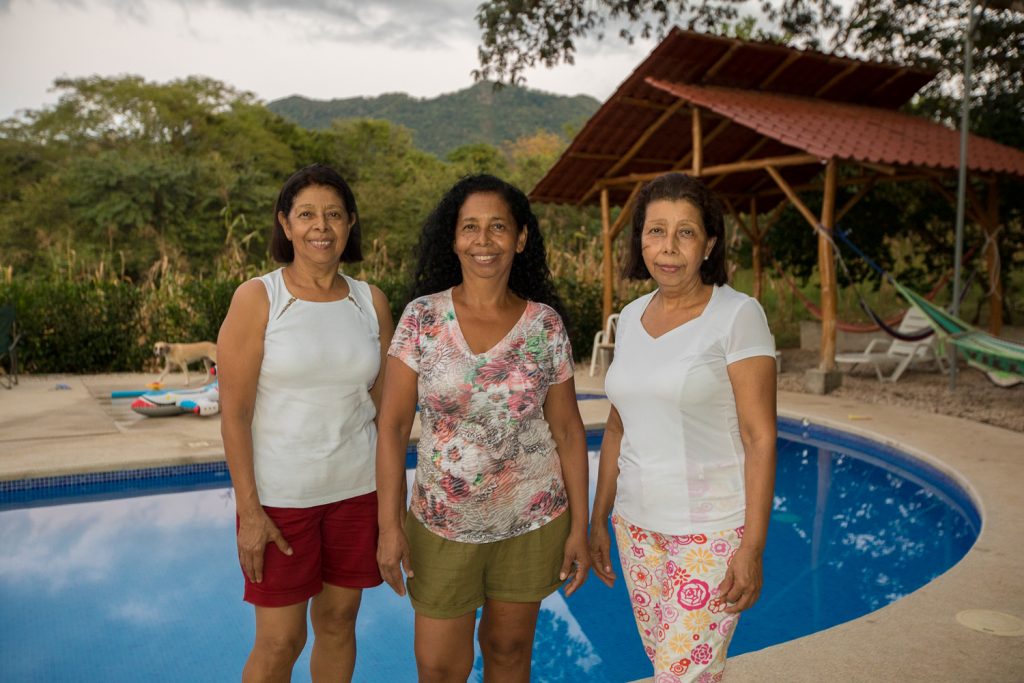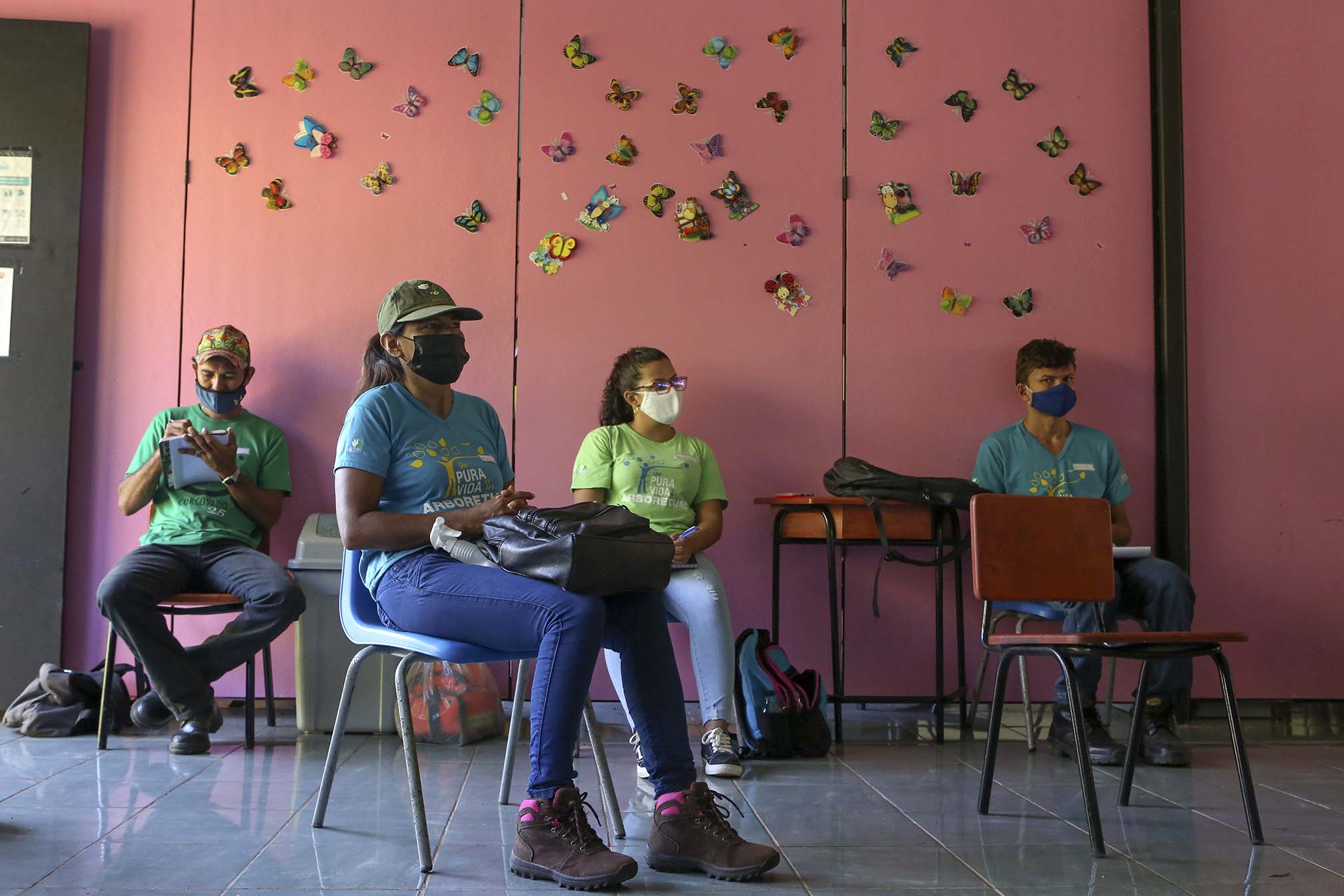The world of trainings for small businesses in Costa Rica is a vast one. Virtual and in-person, free and paid, a host of offerings allow entrepreneurs to learn everything from basic accounting to sewing skills to executive leadership.
Our questions to the members of our growing Entrepreneurs 506 group this week was simple: which trainings have actually made a difference for you? And what could be improved: the ineffective, the inconvenient, the trainings that are absent altogether?
From the resulting explosion of recommendations and links, a consistent idea emerged: the best trainings are those that meet rural entrepreneurs where they are. That might sound simple, but it’s not. It can mean anything from finding a schedule that works for overloaded, full-time-plus-workers; to developing region-specific programs that take into account the fact that running a business is very different in Nosara than it is in Golfito; to overcoming unfamiliarity with technology.
For the entrepreneur, especially one who is handling all aspects of her business on her own, the biggest obstacle to training is simply carving out the time. (Entrepreneurs often refer to themselves as Zoyla; “soy la” is “I am the one who,” as in, “I’m the one who cooks, serves, does the books, does the marketing…) But several participants in Entrepreneurs 506, such as Karol Chinchilla, said that investing the time up front saved time almost immediately in operations.
“When you’re a ‘zoyla,’ there’s only one way to stop and attend: you have to schedule it in advance and know that if you don’t get training, it’s much harder to move forward,” Karol said during our weekly online cafecito. But because she took time for training on budgeting, for example, “having templates saved me so much time… [without the training] I would have taken more time or made mistakes when I charged people.”

Starting with the basics: small business needs in Costa Rica
While it’s fairly easy for entrepreneurs to find trainings in Costa Rica on topics such as leadership skills or digital marketing, several trainers and entrepreneurs mention that many small business owners need to start with nuts and bolts.
“Finances and accounting are a big issue,” says Rosina Campos Torres of INCAE Business School. She coordinates the school’s small business trainings funded through a partnership with Costa Rica’s Development Banking System, and says that when it comes to hard skills, this is the area where professors have noticed the biggest deficits. “We realized that businesses are managed in a very disorganized way. How do they even come up with prices when they don’t have information about their costs?”
She adds that trainings also have to go back to basics when small business owners come in eager to take out a loan, or launch online marketing efforts; oftentimes, as a result of the self-assessment exercises they carry out in training, they realize that their business isn’t yet a good candidate for a loan, or that they need to figure out who their customers are before they invest time or money in additional marketing.
Small business advisor and trainer Adriana Madrigal says she thinks one major improvement that should be made in Costa Rica’s training offerings is the development of specific content for businesses in the same productive area. Time and again, she’s seen business trainings where–for example—a restaurateur, a farmer, an entrepreneur who makes swimsuits, and a beautician are all sitting at the same table.
The result? Trainers can’t delve into the specifics of each person’s industry, so they go general, Adriana says—touching on one of the complaints raised in the Entrepreneurs 506 chat by some participants.
“It would be so important to teach processes according to the nature of the business,” she says. Adriana adds that it’s also important for early stage businesses to have tailor-made support so they can obtain a return on their investment quickly: “We have this belief here [in Costa Rica] that people have to suffer for two years just to get a glimpse of liquidity.”
Rosina agrees that the heterogeneity of business groups in the INCAE challenge has been a challenge. One strategy the school has used to address this has been grouping like businesses together, but by geography rather than business type. They’ve implemented intensive courses for businesses in Nosara, Guanacaste and the area surrounding Golfito, Puntarenas. Because of this regional focus, instructors could adjust content for local needs, and 40% of entrepreneurs said that the trainings have helped them connect with other business leaders in their communities and create local value chains.
Jorge Fallas of the Rural Community Tourism Chamber says Costa Rica is long overdue for a proper assessment of small business needs; the last one he’s aware of, by the INA, took place 10 years ago, he says.
“When you think about the ‘new normal,’ there are topics that are very important,” he says, describing digital skills have surged in importance during the pandemic. “If you’re not tech-savvy or you don’t at least have Facebook and Instagram, you can’t sell today.”

Challenges in delivery: connectivity and recruitment
Besides the challenges of adjusting content to business needs, other challenges in making training more accessible to a wide variety of small businesses, or PYMES, include timing—several participants in our group mentioned scheduling challenges as one reason they haven’t been able to participate in trainings—and connectivity.
The pandemic, without any doubt, has accelerated the process of shifting trainers to digital formats, which all agree has made it much easier for entrepreneurs, particularly in rural areas, to access trainings that just a few years ago were much easier for people in the Central Valley to access. For example, rural tourism entrepreneurs can now access Costa Rican Tourism Institute (ICT) trainings through the ICT Capacita platform. However, unequal internet access across the country poses huge challenges for digital trainings with a mission to reach rural participants.
“In Nosara… Golfito, Corredores, Coto Brus, during the rainy season, we sometimes had to reschedule classes because half the class couldn’t connect, or they couldn’t turn on their cameras because the signal was terrible,” Rosina, of INCAE, recounts. She says INCAE trainers sometimes reached out to municipalities in the focus areas to see what could be done to increase entrepreneurs’ access.
Once again, trainers also needed to go back to basics on the technology front, beginning courses with a primer on how to use Zoom, how to turn one’s microphone on and off, and other lessons to level the playing field for entrepreneurs unused to technology.
Recruitment is another challenge she mentions: when INCAE targeted specific areas, they were able to recruit local PYMES for the course, but whenever they have a national call for trainees, entrepreneurs in the Central Valley overwhelmingly dominate.

Training not on your radar? Here’s how to get started
A few participants in our weekly chat said that training isn’t even on their radar yet. No news about trainings has reached them, and their time is short, they reported.
Jorge Fallas of the Rural Community Tourism Chamber has two recommendations for small business owners who are eager to start tapping into the many training resources that Costa Rica has to offer. Neither is necessarily simple, but he says they’re the key to getting your foot in the door.
Step one is to carve out time to read about what’s out there. Check your email—PYMES registered with the Ministry of the Economy, Industry and Commerce (MEIC) receive information about trainings via email—and read the social media scrolls of key trainers such as the National Training Institute (INA), INCAE, or other organizations whose trainings were recommended by our Emprendedores 506 group, such as INFOCOOP, UNED, and PYME Nauta (Banco Nacional). So much information about free offerings is right in front of us, but it takes time to sift through it.
“My policy is that at least one day a week, I dedicate time to [professional] reading,” says Jorge, who manages the Alto Palomo Hotel.
The other key step? Legalizing, or formalizing, your business. As we reported last week, registering your business with the MEIC’s Small Business Registry and obtaining the Small Business Seal, or Sello PYME, gets you on the MEIC email list and opens the door to a wide variety of free trainings.
“It all goes hand in hand, again and again, with legality,” says Jorge of a country where thousands of businesses remain informal because of the costs and bureaucracy involved in formalization; read more in last week’s piece. “If you’re legally constituted, you’ll be taken into account for trainings.”
Join our Emprendedores 506 WhatsApp group to learn more about these topics.
Tools for entrepreneurs and consumers: small business certifications in Costa Rica





